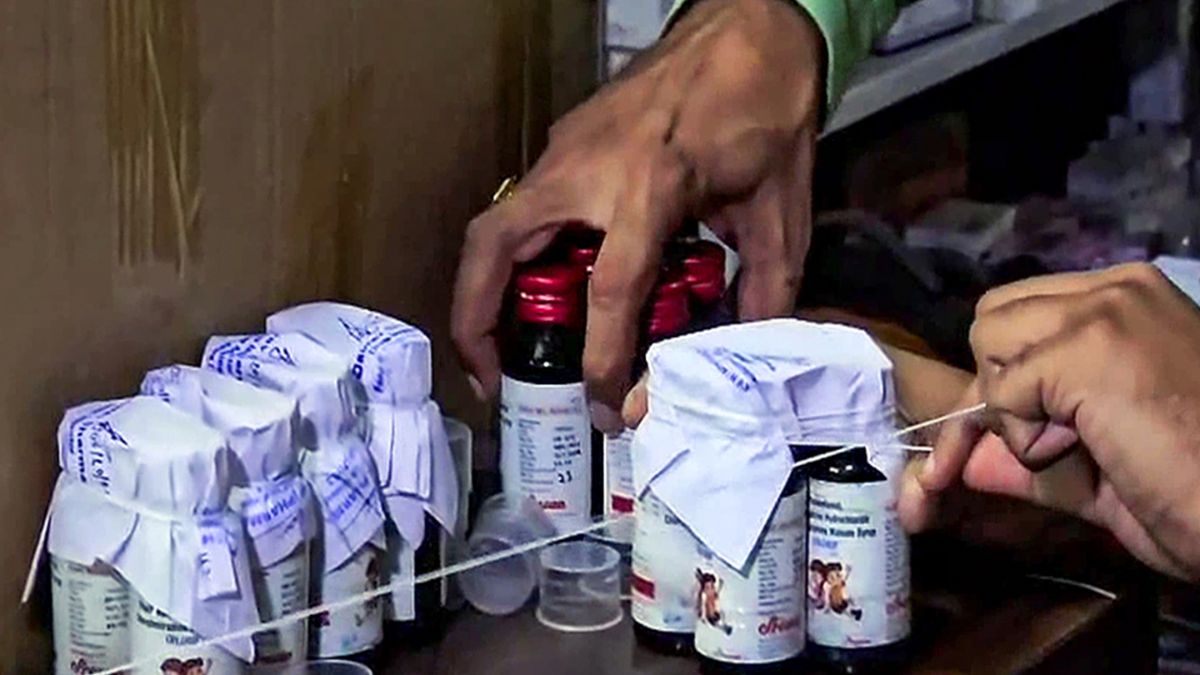Indian investigators are looking at whether toxic tough syrups responsible for the deaths of several children were contaminated by a faulty pharmaceutical ingredient due to safety oversight.
According to a report by Reuters, three health and drug safety officials from Tamil Nadu said that they believe the solvent used to make a batch of Coldrif cough syrup could have been contaminated with a toxic chemical around the time it was supplied to the drugmaker, Sresan Pharmaceutical Manufacturer.
The World Health Organisation said India has more work to do in halting sales of toxic cough syrup, despite some progress. The children died after taking the Coldrif cough medicine made by Sresan Pharma, which tests showed contained the toxin diethylene glycol (DEG) in quantities nearly 500 times the permissible limit.
Safety lapse led to contamination?
As per the report, Sresan had acquired 50 kg of propylene glycol (PG) from a local chemical distributor called Sunrise Biotech on March 25. The distributor bought the supply on the same day from Jinkushal Aroma, a small company that makes fragrance blends for liquid detergents and other chemicals.
Authorities are probing how DEG was added to the solvent that is used as a base for cough syrups to dissolve other active ingredients. Indian health officials say DEG is sometimes fraudulently or unintentionally used in medicines in place of pricier PG. Ingesting high levels of it has been linked to acute kidney damage and death in children.
Sunrise told Reuters that it had repackaged the PG without a seal before delivering it to Sresan. This is important because PGs are usually supplied in sealed containers to avoid contamination.
Quick Reads
View AllIndia’s Drugs and Cosmetics Act prohibits the sale and handling of pharmaceutical-grade ingredients like medicinal PG by entities that do not have drug licences.
Neither Jinkushal nor Sunrise have licences for handling pharmaceutical-grade ingredients, the two wholesale distributors confirmed to Reuters. Their owners said they weren’t aware that the PG they had sold would be used to make medication.
‘Unhygienic conditions’
Inspections conducted by the state regulator after the deaths found hundreds of “critical” and “major” violations at Sresan’s factory outside the southern city of Chennai, including storing products in “unhygienic conditions” and “falsification of data,” according to the Oct. 3 report. The regulator did not, however, link those breaches directly to the deaths.
The PG that Sresan told inspectors it used was produced by South Korean manufacturer SK picglobal, according to a certificate of analysis shared by Jinkushal and Sunrise with investigators, reviewed by Reuters.
The certificate included the manufacturing date of the PG, as well as specifics about its chemical contents. Reuters couldn’t independently verify the accuracy of the contents, though an SK picglobal spokesperson said the copy seen by the news agency appeared to be authentic.
With inputs from Reuters
)